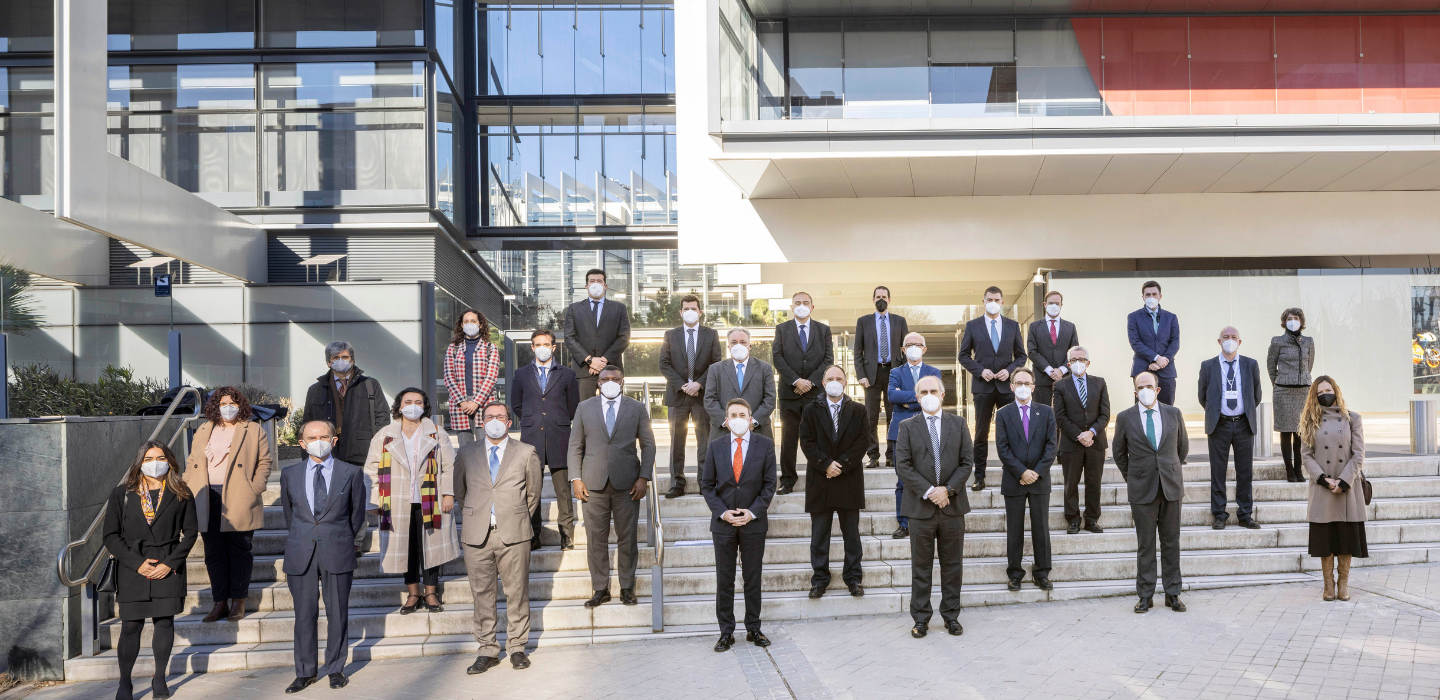The SHYNE (Spanish Hydrogen Network) project, the largest renewable hydrogen consortium in Spain, made up of 33 entities. It brings together 22 companies and 11 associations, technology centers included The Catalonia Institute for Energy Research (IREC), and universities under the leadership of Repsol with the aim of promoting renewable hydrogen projects in all areas of the Spanish economy and driving decarbonization through this energy vector, which is key in the energy transition.
The consortium will be a national collaboration network that will support all projects and manage the knowledge and research of pioneering technologies, promoting competitiveness and the creation of quality employment. The commitment of the participating entities and the sum of their capabilities will place Spain at the technological forefront, as one of the powers in the renewable hydrogen economy in Europe.
Spain is in a privileged position compared to other countries to capture the opportunities generated by the new renewable hydrogen economy thanks to the great availability of solar and wind resources, as well as the industry’s own capacity to adapt to a new economy around the hydrogen value chain.
The SHYNE project aims to generate an ecosystem that connects the large regional hydrogen initiatives already underway, such as the Basque Region Hydrogen Corridor (BH2C), the Hydrogen Valley of the Region of Catalonia, where the Catalonia Institute for Energy Research (IREC) also participates, and the Hydrogen Valley of the Region of Murcia. In addition, SHYNE will promote the creation of two new innovation hubs in the regions of Castile-La Mancha and Madrid. Their objective will be the advancement of competitive technologies that are under development, such as photoelectrocatalysis or solid oxide electrolysis (SOEC). These technologies will help the country to maintain technological sovereignty in this new energy vector.
The SHYNE project is perfectly aligned with the objectives outlined by both the European Union and the Spanish Government. The latter, in the Hydrogen Roadmap published in October 2020, has set the target of reaching 4 GW of capacity by 2030. For its part, the “Spain Can Plan” supports the creation of this type of consortia, especially those that are multisectional and integrate the entire value chain and that promote public-private collaboration and collaboration with small and medium-sized companies, as well as with research centers to boost the hydrogen economy.
In turn, SHYNE is aligned with the Strategic Projects for the Recovery and Economic Transformation of Renewable Energies, Renewable Hydrogen and Storage (PERTE ERHA) of the Recovery, Transformation and Resilience Plan launched by the Ministry for Ecological Transition and the Demographic Challenge last December.
Companies that are part of SHYNE
Promoting partners: Repsol, Alsa, Bosch, Celsa, Enagás, Scania, Talgo.
Collaborating partners: Fundació Institut de Recerca en Energia de Catalunya (IREC), Centro Superior de Investigaciones Científicas (CSIC), Centro Tecnológico de Automoción de Galicia (CTAG), Fundación Hidrógeno Aragón, TECNALIA, Cidetec, Universidad de Castilla-La Mancha, Universidad de Alicante, Asociación Española de Hidrógeno (AEH2), Centro Nacional de Experimentación de Tecnologías de Hidrógeno y Pilas de Combustible (CNH2), Sociedad Española de Cerámica y Vidrio, AMES Group, Balearia, BBE, Calvera, DYPAM, EPowerlabs, Iberia, Magrana, Navantia, Primafrío, PYMAR, Sidenor, Tubacex, Wartsila, Zigor.
The complete press release (in Spanish and English) can be found in the following links:



